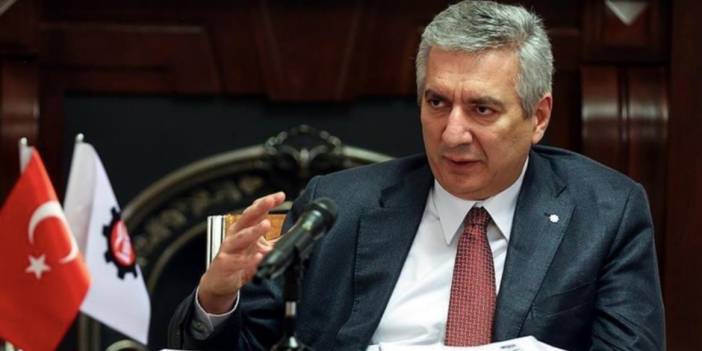News published today in Britain’s Financial Times newspaper pointed out that foreign investors, fearing a recession and rising interest rates, were accelerating capital outflows from developing countries, which they saw as risky, and that despite this, Turkey was the only developing country of concern.
According to the Institute of International Finance report, the news has pointed out that foreign investors have outflowed over $38 billion in the last 5 months, including $10.5 billion from developing countries last month. The analysis, which suggested these outflows could exacerbate the growing financial crisis in developing countries, noted that over the past three months Sri Lanka has defaulted on its debt and Bangladesh and Pakistan have turned to the IMF for help. Noting that the cost of borrowing in large developing countries such as Brazil, Mexico, India and South Africa has risen less this year, “Many countries acted early to fight inflation and took action to protect themselves from external shocks.” it has been said.
“The cost of currency-hedged deposits is too high”
Economist with Absolute Strategy Research’s developing countries division, whose views are featured in the news. Adam Wolfenoting that Turkey is the only country of concern among the major developing countries “The cost of measures to support the lira while the government refuses to hike interest rates is too high because it promises local depositors to bear the cost of devaluing sticking to the currency (currency-hedged deposits)” said. Wolfe pointed out that such measures can only work as long as Turkey runs a current account surplus, but even that is a rare situation. “If external funding is needed, these systems will eventually fail” made his comment.
Kubilay: Turkey is considered a potential crisis candidate
We get your opinion on the news Dr. Murat KubilayStressing that Turkey is seen as a potential candidate for a new crisis in world markets, “Following the Monetary Policy Committee meeting to announce the interest rate decision on August 18, developments to the detriment of Turkey could accelerate” said.
Due to the increased global demand as a result of the pandemic and the surge in energy prices caused by the Ukraine war; Kubilay explained that central banks in developed countries have changed both the level of interest rate hikes and the rate at which they are raised, leading to a rapid outflow of capital from risky markets.
“Countries that are energy importers and have lost their foreign exchange reserves as a result of the pandemic have come to the fore negatively and Sri Lanka has not even been able to pay its external debt. A similar situation had previously existed in Lebanon. Also in the same region, Pakistan, Egypt, Tunisia and Turkey are approaching the same negative situation to varying degrees. Turkey’s key difference is that its foreign exchange and gold reserves fall to -$55 billion as liabilities and credit fall, and it maintains its low interest rate policy despite rising inflation. $183.3 billion must be repaid within 12 months and an additional current account deficit of $40 billion must be financed. In an environment where central banks in developed countries are raising interest rates in a country with CDS premiums in excess of 850 basis points, even with a dollar-denominated income of 10 percent, finding debt is not easy. Furthermore, there is no expectation or implication that any return will be realized on the current policies. In addition, foreign exchange demand by domestic companies and investors seems to be the reason for this situation; However, the unsustainable balance of payments deficits and the foreign exchange withdrawal symptoms caused by the low interest rate policy are a fact. So the diagnosis is also wrong.”
 ICI Chairman Bahçıvan: We are far from target inflation
ICI Chairman Bahçıvan: We are far from target inflation
 After TOBB, ISO also rebelled: warning of chain reactions
After TOBB, ISO also rebelled: warning of chain reactions
#Financial #Times #cost #liraization #strategy #high #Turkey #major #developing #country #concern
No comments:
Post a Comment